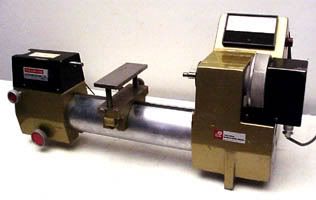hesstool
Stainless
- Joined
- Oct 4, 2007
- Location
- Richland, WA
It's not necessary, but I thought it'd be nice to have calibrated tools for the job I'm doing right now. So just for fun, I requested prices from my local calibration lab for calibrating my OD and ID micrometers and associated standards. I about wet myself when I saw the price list they provided.
$115 ea. for 0-1", 1-2", and 2-3" OD mics and $40 for each standard!
Dang, for that price I can buy a 0-1" mic with a long form certification right from the manufacturer.
Now, a couple years back, I sent some mics and standards to a 17025 accredited lab in Fort Wayne, IN and I know for a fact that the total bill, including shipping, was less than $120.
This local lab is based at, and does all the calibrations for our local Nuke plant and is trying to diversify. With these prices I don't see how they could compete with the regional labs here in the Northwest.
I'm interested to find out how much calibrations cost in your area. (Something simple like a 0-1" mic.)
$115 ea. for 0-1", 1-2", and 2-3" OD mics and $40 for each standard!
Dang, for that price I can buy a 0-1" mic with a long form certification right from the manufacturer.
Now, a couple years back, I sent some mics and standards to a 17025 accredited lab in Fort Wayne, IN and I know for a fact that the total bill, including shipping, was less than $120.
This local lab is based at, and does all the calibrations for our local Nuke plant and is trying to diversify. With these prices I don't see how they could compete with the regional labs here in the Northwest.
I'm interested to find out how much calibrations cost in your area. (Something simple like a 0-1" mic.)


 ). I just bought a set of Mitutoyo calibration gage blocks for $35 bucks - they look new.
). I just bought a set of Mitutoyo calibration gage blocks for $35 bucks - they look new. 

 LAWTZ!! That's a SUPER mic all right.
LAWTZ!! That's a SUPER mic all right.